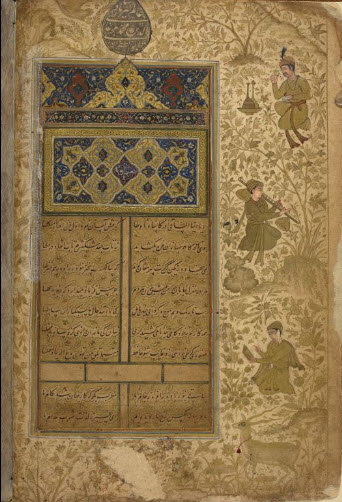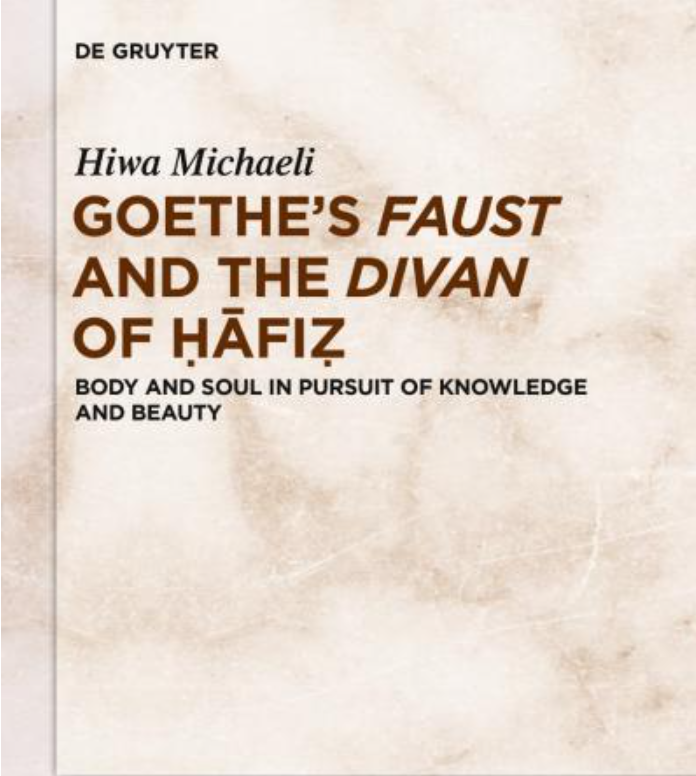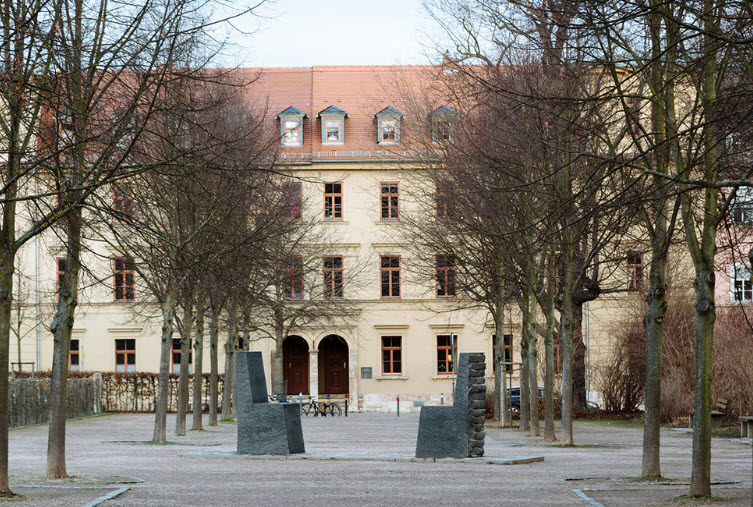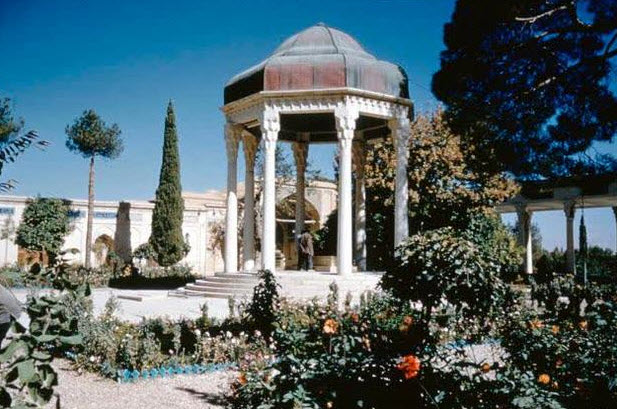“In each verse, with the intense concentration of thought and wisdom so singularly his own, he has produced in amazing variety facets of truth and beauty, of meaning and wisdom.”
Mawlana Sultan Muhammah Shah Aga Khan III
Shams-ud-din Muhammad, one of the most celebrated of the Persian poets, known by his pen-name Hafiz, or Hafez, was born around 1310 in Shiraz in Persia (modern-day Iran). It is believed that he memorised the Qur’an after hearing his father recite the verses, hence the name hafiz, Arabic for ‘one who has memorised the Qur’an.’ Other theories suggest that it also means ‘one who protects or upholds’ as well as referring to ‘being mindful or watchful.’ When his father died, Hafiz left school and worked at a bakery; he may have also worked as a scribe and a teacher.
During the fourteenth century, although it was a turbulent century as rulers fought for power, Shiraz was an intellectual and literary centre: Sufi orders (tariqa) were being established, the city was a centre of book illustration and renowned for its gardens as well as for the House of Knowledge (dar al-ilm). Furthermore, literary luminaries of Persia had lived there earlier including Khayyam (d. 1131), Nizami (d. 1202), Attar (1221), Rumi (d.1273), Quhistani (d. 1321), and the thoughts of the prominent philosopher Ibn Arabi (d.1240) were debated.
Very little is known about Hafiz’s early life including when he began to compose poetry. He seems to have followed the common practice of writing praises of rulers and nobles, becoming the court poet for a short time.
Hafiz is revered for his over 400 ghazals, a form of love poetry in rhyming couplets comparable to the sonnet, although he has written in the other poetic forms of qasida (long rhyming poem), mathnawi (couplets), and rubaiyyat (quatrains) collected in his Divan that has prompted numerous commentaries. In his poetry, Hafiz advocates abandoning restraints in order to come into direct contact with the spiritual realm. “Many critics would point out that what appears to be reckless hedonism in Hafez’s works is in fact an allegory for the unspeakable ecstasy of spiritual experience” (New World Encyclopedia).

Hafiz’s works were first translated into English in 1771 by William Jones, and into German by Joseph von Hammer-Purgstall in 1812, although many agree that owing to the ambiguity of his literal and metaphorical words, translations are challenging. His mystical poetry has been inspirational for poets of all cultures influencing early European Romantics including Friedrich Schiller (d. 1805) and Johann Wolfgang von Goethe (d. 1832).

Peter Avery, in the Foreword to Hafiz and the Religion of Love in Classical Persian Poetry explains that Hafiz’s poetry is challenging to translate into other languages due to “the subtle ambiguities, the marvellous wordplay, the several levels on which he can be interpreted” (p xi).
In his address to the Iran Society, Imam Sultan Muhammad Shah said, “Any attempt at translation of Hafiz has always led to immense disappointment. The explanation is simple; he was not merely the Hafiz of the Qur’an, but well acquainted with the whole field of philosophy, history, poetry and literature, with the highest thought then known to his countrymen. In each verse, with the intense concentration of thought and wisdom so singularly his own, he has produced in amazing variety facets of truth and beauty, of meaning and wisdom.”
Ladinsky noted that Hafiz “is considered by many – from different cultures – to be one of the seven literary wonders of the world. Ralph Waldo Emerson and Johann Wolfgang von Goethe both agreed. As Emerson said of Hafiz: “He fears nothing. He sees too far, he sees throughout; such is the only man I wish to see or be.” And Emerson gave Hafiz that grand and famous compliment, “Hafiz is a poet for poets.”
Hafiz’s works were also a source of profound inspiration for Goethe, who said “Hafiz has no peer” (Ladinsky, BBC Culture).

The Hafiz Goethe Memorial at Beethovenplatz in Weimar, Germany, commemorates Goethe’s encounter with the works of Hafiz with two opposing granite chairs, aligned east to west” (Hafiz Goethe Memorial), a metaphor of the meeting of the eastern and western cultures.


Sources:
Daniel Ladinsky, The mystical poet who can help you lead a better life, BBC Culture
Leonard Lewisohn, “Prolegomenon to the Study of Hafiz,” in Hafiz and the Religion of Love in Classical Persian Poetry, Edited by Leonard Lewisohn
Parvin Loloi, “Hafiz and the Language of Love in Nineteenth-Century English and American Poetry” published in Hafiz and the Religion of Love in Classical Persian Poetry, Edited by Leonard Lewisohn, 2010 (p 308)
Iraj Bashiri, The Life of Shams al-Din Hafiz
Hafez, New World Encyclopedia
